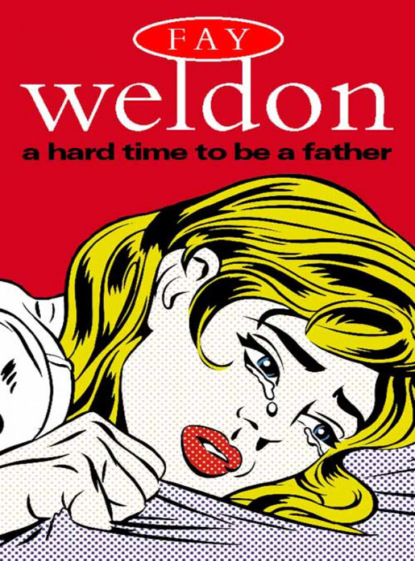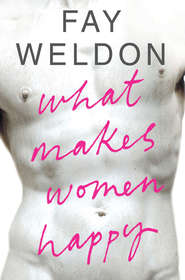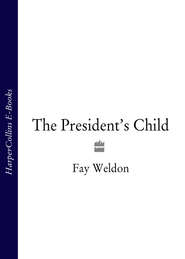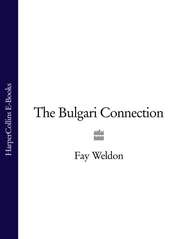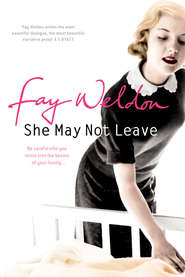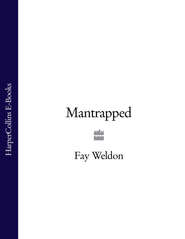По всем вопросам обращайтесь на: info@litportal.ru
(©) 2003-2024.
✖
A Hard Time to Be a Father
Автор
Год написания книги
2018
Настройки чтения
Размер шрифта
Высота строк
Поля
Before I left for Helsinki my mother said something strange. ‘Your father ran off with a girl from Finland,’ she said. ‘Our au pair. Just make sure you come back.’ Now my mother never said anything at all about my father if she could help it. And my sister Chris and I seldom asked. Questions about our dad upset her. And it doesn’t do to upset a woman who is a golf coach by profession. She gets put off her stroke, and if she loses her job, how will any of you live? Our house went with the job. On the edge of the golf course. Thwack, thwee, muted shouts – to me the sound of childhood.
I expect if your husband ran off with the Finnish au pair you wouldn’t want to dwell on it much. This was the first I’d heard of it. Chris and I had tried to trace our father, when she was twenty-one and I was eighteen, but we never got very far. I can’t say we tried hard. Who wants to be in touch with a father who doesn’t want to be in touch with you? Apart from the fun of the thing, I suppose. Sister Chris had been oddly worried about my going to Helsinki.
‘You and your lifestyle!’ she said, when I rang the Nurses’ Home to say I was off to work on Lenin in Love. She’d just been made Night Sister of Men’s Orthopaedic. Quite a cheerful ward, she said. At least they mostly got better. ‘Can’t you ever stay in one place, Jude. You’ll get AIDS if you don’t watch out. You film-people!’ Chris had my lifestyle all wrong. I was astonishingly sedate. There’d only ever been Andreas Anders, apart from a few forgettables. It was pathetic, really. But somehow men seem to know if your emotions are occupied elsewhere. You send out ‘I belong to someone bigger than you’ signals, just as much if you’re wretchedly involved as if you’re happily married.
My mother and sister were right to worry, as it happened. Because a strange thing did happen to me in Helsinki. I was walking with Tony in the Rural Life Museum one Sunday and explaining why I wouldn’t go to bed with him, and what was wrong with his psyche. He was looking quite wretched and pale, as men will in such circumstances. The Museum is in fact an open-air park devoted to the artefacts of Finland’s past. We were admiring an elegant wooden church boat which could hold a hundred people – entire villages would row themselves to church in these boats if they so chose – when my attention was caught by one of those familiar groups of people, complete with cameras and sound equipment. This lot were clustered round and filming one of the enormous orange toadstools with yellow spots they have in these parts. Proper traditional pixie toadstools. Hallucinogenic, they say.
And the sound man put down his gear – he was taking white sound, I presumed: a toadstool hardly makes much noise, even in its growing, which can be pretty rapid – and walked over to me. He wasn’t young. Sixty or so, I suppose. Quite heavy round his middle: pleasant looking: intelligent: glasses.
‘Hello,’ he said, in English.
‘Hello,’ I said, and I thought where have I seen that face before? And then I realised, why! whenever I look in the mirror, or when I look at Chris: that’s where I’ve seen it. More the latter, because both Chris and he were overweight. It looked worse on her. He was really quite attractive.
‘You’re with the English film crew, aren’t you?’ he said.
‘I saw you in the Square yesterday. It had to be you. Jude Iscarry.’
‘Or Judas Iscariot or Jude the Obscure,’ I said, playing for time, because my heart was pounding. ‘Take your pick!’
‘Your mother said you’d gone into films,’ he said. ‘Chip off the old block.’
‘You’re my father,’ I said.
‘’Fraid so,’ he said.
‘I didn’t know she was in touch with you,’ I said. It was all I could say. Tony just stood and looked on. Moments in a person’s life!
‘I passed by five years back,’ my father said, ‘but she advised me strongly to keep away, so I did. Though I’d have liked to have stayed. Quite a powerful stroke, your mother.’
‘She’s had to develop it,’ I said.
‘Um,’ he said. ‘But she always was independent, wanted to be father and mother too.’
‘That’s no excuse,’ I said.
Tony left us and he, my father, whose name was Saul Iscarry, took me out to lunch. We had pancakes, caviar and sour cream, washed down by tots of vodka. The best food in the world. The Finns have the highest heart disease rate in the world. So Chris had assured me, before I set off for Helsinki.
My father had eventually married his Vieno, my mother’s au pair, and actually gone to the Moscow Film School, and now he was one of the best sound men in the world (he said) and had Finnish nationality, but lived in Leningrad. Vieno was a doctor, they had three children, and what with visa problems and general business and so forth there hadn’t been much point in keeping in touch, let alone the time. (Roubles are just one of those currencies that make it difficult for a father to support his abandoned children.) But he’d thought of Chris and me a lot.
Big deal, I thought, but said nothing. What was the point?
Now we were in touch, he said, we must keep in touch. He was glad I was in films. The best life in the world, he said, if you had the temperament. But why was I only a PA? Why wasn’t I a producer, at the very least? Ah. Well. He said he’d like to see Chris. How was she? Just fine, I said. She’d have to come over and see him some time, since visas for him were so complicated. If you ask me visas are as complicated as you care to make them, but I didn’t say that either.
I said Chris would be over to see him next Easter. That gave her six months to lose three stone. She should be able to do that. A girl likes to be at her best when she meets up with her old dad.
‘You’ve grown up a fine handsome girl, Jude,’ he said. ‘I’m proud of you,’ and you know, that meant a great deal to me. More than it should have. If anyone was to take the credit for the way I was it should have been my mother. Oh, Great Universal Paradox which runs our lives – that what should please us doesn’t, and what does please us, shouldn’t!
He had to go back to work, my father said. The pixie toadstool called. The crew could not be kept waiting. When could it ever, in any country, in any language in the world? We exchanged addresses. He went.
And I took myself off to the little Greek Orthodox church that’s tucked away behind the Great Square, and there I sat down. I had to be quiet: absorb what had just happened. I didn’t kneel. I’m not very religious. I just sat, and thought, and rested. The unexpected is tiring.
It’s a small, ancient building: a chapel rather than a church. But it blazes with intricate icons and gold leaf and crimson velvet; everything shimmers: there’s no way it can’t: there must be a thousand candles at least stuck all around, lit by the faithful at their own expense. It’s a sensuous, somehow Mediterranean place, stuck here as if by accident in this cold northern land. The air was heavy with incense: that and candle smoke smarted the eyes: or was I crying? And in the ears was the gentle murmur of the faithful, the click click of the telling of beads. Yes, I was crying. But I don’t think from wretchedness. Relief, happiness almost, at something completed. My father: no longer fantasy, just a man.
And there in front of me, a couple of rows nearer the great glittery altar, was sitting Andreas Anders. He looked round and saw me. I wish he hadn’t. I wanted to just go on sitting there, alone, thinking. But he got up and came to sit next to me. How good-looking he was. His bright eyes glittered in the candlelight.
‘Well,’ he said, ‘she’s not coming to Helsinki after all. gHad you heard?’
By ‘she’ he always meant Caroline Christopherson. ‘I think,’ he said, ‘I’d better give her up altogether, don’t you? Divorce, or something drastic. I can’t stand the strain.’
‘Let’s go outside,’ I said. ‘This isn’t the place for such conversations.’ Nor was it. As I say, I’m not one for religion, but some sort of God was here in this place, albeit in heavy disguise, and didn’t want to hear all this soggy, emotional mish-mash.
So we went out, Andreas and me. And he tucked his arm into mine and said, ‘Shall we go back to the Inter-Continental, just you and me?’ and I pulled my arm away and said, ‘No, I won’t. What a monster you are!’ and heard myself saying it, and knew I meant it, and there I was, out of love with him. Just like that. ‘A monster?’ he asked, hurt and confused. But I didn’t even want to discuss it. It wasn’t worth it. I’d see the Lenin in Love through, of course, because I was a professional, but that was all. The man was an egocentric maniac.
I left him staring after me, his worm turned, and I went back to the Hesperia and found Tony in my bedroom and told him to stop messing about and for heaven’s sake somehow get his wife and children back. If he wanted to get out of the business, let him do it with the proper person.
‘Is this what finding a long lost father can do?’ he asked, as he left. ‘And I had such high hopes…’
And all I could do was suppose it was: that, and simply Finland itself.
In the past Finland has always been conquered or annexed or governed by someone else – this vast flat stretch, on top of the world, of islands and forests – but now it has its own identity, its own pride: it looks not to its previous masters, Sweden and Russia, but to itself. How odd, to identify so with a nation! Perhaps it’s hereditary, in the genes: like ending up in the film business. My dad ran off with a Finn: one mustn’t forget that. Perhaps he somehow felt the same connection, and can be forgiven.
And that’s the strange thing that happened to me in Helsinki, last October, and how my life has changed. And I called this story ‘Falling in Love in Helsinki’, not ‘Out of Love’, because although it’s true I fell out of love with Andreas, out of love with love (which is a real blight), somehow I fell into love with life. Or with God, call it what you will, there in that chapel. Whatever, I found myself sufficiently enamoured of just the sheer dignity of creation to realise I shouldn’t offend it the way I had been doing. I think everything’s going to be all right now. I’ll make out. I might even leave the film business altogether. Not go into a convent, or anything so extreme. But I might try politics. It’s what I’m trained for.
As for GUP, the Great Universal Paradox, that’s real enough. What I marvel at now is how happy so many of us manage to be, so much of the time, in spite of it.
Not Even a Blood Relation (#ulink_cc28e0ca-7f99-5cde-b34d-64e44da05bfb)
‘You are so selfish,’ said Edwina to her mother. Edwina was thirty-one. She hated her name. When she was born her parents had expected a boy: ‘Edwin’ had been ready and waiting. Her father and mother had just added an ‘a’ and thereafter ignored her. Edwina was Hughie and Beverley’s first-born. Father: Hughie, Earl of Cowarth; mother: Beverley, a fortune-hunter from New Zealand. Now, decades into family disapproval, Beverley was sixty-one: Hughie had died mere months ago: Edwina, at thirty-one, had affairs, rode to hounds and drank too much. The family had just about got over the shock of Hughie’s death. Now it was all wills, or rather no wills, and inheritance, or no inheritance, and who got what title: that is to say whatever sad crumbs of comfort spilled out after death could be picked over and scrabbled for. Hughie had been much and genuinely loved.
‘But then,’ Edwina added, ‘I suppose you always were selfish.’
‘What is so selfish?’ asked Beverley, startled, ‘about wanting to live in my own bleeding home?’
‘Because it’s far too big for you now,’ said Georgina. ‘Sell the place and find somewhere small and sensible to live, and divide the money amongst us.’ Georgina had been intended to be George. Another failure. Georgina was thirty. Now she was pregnant and had long blonde curls. That should show her mother a thing or two.
‘Little middle tomboy,’ her mother had once referred to Georgina, dismissively. Or so Georgina had chosen to interpret the remark. Beverley kept her second daughter’s hair really short and occasionally tossed her a gun so she could join in the shoot. How Georgina would cry. So many poor dead birds, falling about her ears! She always wore high heels when she could, even in the country, vulgar or not.
‘If you think that just because Hughie has carked it,’ said Beverley, ‘I have too, you have another think coming!’ ‘We must hear what mother is saying,’ said Davida, the third daughter. (Three daughters. It was beyond a joke, and Hughie had never even laughed in the first place. He knew he had to produce a male heir or the title would go to his brother John.) Davida was twenty-eight. She was a therapist, married to a psychiatrist. Her once bouncy hair had flattened out and grown limp from the strain of wisdom, her bright eyes had turned soulful, her voice gone soft from understanding her own anger and that of others.
Beverley’s answer to the three of them was defiance: she meant to stay at Cowarth Court, on her own, all thirty-one bedrooms of it, three dining halls, two ballrooms, three bathrooms – hopeless, hopeless, only one to every ten bedrooms, but the water supply in these Elizabethan mansions is always tricky, and at least Hughie and Beverley’s en-suite
Вы ознакомились с фрагментом книги.
Приобретайте полный текст книги у нашего партнера:
Приобретайте полный текст книги у нашего партнера:





